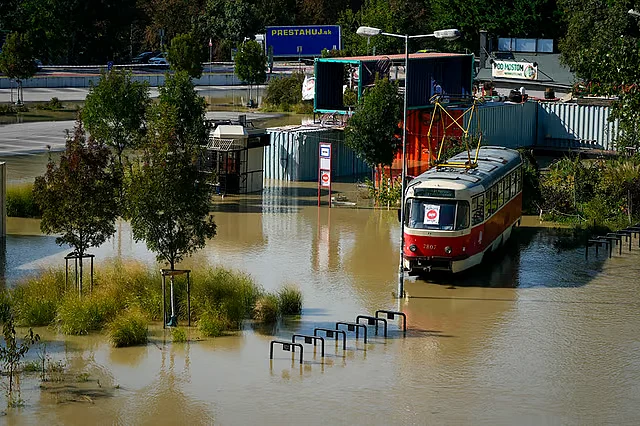As the entire Central Europe continues to battle the grim consequences of a devastating deluge including at least 24 deaths and several injuries, all triggered by unprecedented rainfall, new research findings suggest that the elevation in global temperature primarily caused by anthropogenic reasons has doubled the possibility of extreme levels of rain in September.
In Central Europe, Storm Boris unleashed an unprecedented amount of rainfall for four consecutive days upon Austria, the Czech Republic, Hungary, Poland, Romania and Slovakia.
Why did Storm Boris bring so much rain?
The reason behind producing such record-breaking rainfall is the weather system getting 'stuck' or 'stalled' which triggered dumping of huge amounts of water. Research says that the effects of climate change on the jet stream, which is defined as a band of fast-flowing winds high up in the atmosphere, is likely to cause the 'stalling' phenomenon.
According to a BBC report, Richard Allan, professor in climate science at the University of Reading, said, “These weather patterns occurred in a warmer climate because of our greenhouse gas emissions, [so] the intensity and volume of rainfall was larger than it would have otherwise been,” explains .
Europe floods: Doubling effect, 7 percent stronger rains
According to a study by the World Weather Attribution (WWA), the different attributes of climate change are responsible for significant changes in the rainfall pattern which was at least 7 percent stronger in Central Europe.
The scientists followed the methodology of drawing a comparison between the rainfall recorded in Central Europe in September with amounts simulated for a world that is 1.3 degrees-Celsius cooler, the level of warming caused till date by manmade climate change, before coming to the conclusion of a “doubling in likelihood and a 7% increase in intensity” of the rainfall all caused by human influence.
The study also mentioned that considering the current climate scenario which is warmed by about 1.3 degrees-Celsius due to greenhouse gas emissions, we can still stay that the kind of rainfall unleashed by Boris is still rare and is expected to occur about once every 100-300 years. However, if the global heating 2 degrees-Celsius, similar episodes of rainfall will become more frequent and an extra 5 percent more intense.
A glimpse of the climate change impact
According to the co-author of the study Bogdan Chojnicki, a climate scientist at Poznań University of Life Sciences, “The trend is clear. If humans keep filling the atmosphere with fossil fuel emissions, the situation will be more severe.”
Further painting a picture of the unavoidable impacts of climate change in the near future, another co-author of the WWA study, Maja Vahlberg, technical adviser at the Red Cross Red Crescent Climate Centre, said, “These floods indicate just how costly climate change is becoming. Even with days of preparation, flood waters still devastated towns, destroyed thousands of homes and saw the European Union pledge €10bn in aid.”

























